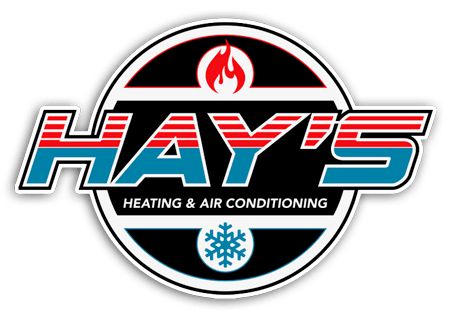Maintaining a comfortable and healthy living or working environment hinges significantly on the reliability of your HVAC system. These complex systems, crucial for regulating indoor temperature and air quality, can occasionally falter, necessitating timely repairs. Understanding when and why these repairs are needed not only helps in quick resolution but also in the longevity and efficiency of your HVAC system. This comprehensive guide delves into the most common HVAC problems, their signs, the typical lifespan of these systems, and the intricacies of repair costs. Whether you’re faced with a minor issue or a complete system failure, knowing what steps to take can save time, money, and discomfort. Let’s explore the essential knowledge every HVAC system owner should have, ensuring that when repairs are needed, you’re prepared and informed.
Most Common HVAC Repair Problems
HVAC systems, while robust, are susceptible to a series of common issues that can impair their efficiency and functionality:
Faulty Wiring
Improper or aged wiring can pose significant risks, including electrical hazards and system malfunctions. Symptoms include frequent circuit breaker trips and the system not starting.
Low Refrigerant Levels
Refrigerant, the coolant in air conditioning systems, can run low due to leaks. This results in reduced cooling efficiency, longer run times, and increased energy costs.
Blocked Filters or Ductwork
Clogged air filters and ducts restrict airflow, leading to poor temperature regulation, strain on the system, and reduced air quality. Regular cleaning and replacement are essential.
Thermostat Issues
Malfunctioning thermostats can lead to erratic temperature control or system short cycling. Often, recalibration or replacement can resolve these problems.
Wear and Tear of Components
Regular use leads to wear and tear of HVAC components like belts and bearings, causing noises, inefficiency, or breakdowns.
Drainage Problems
Blocked or misaligned drain lines can cause water leaks and humidity problems, especially in air conditioners.
Ignition or Pilot Control Issues
For heating systems, problems with ignition or pilot lights can hinder heating abilities, often due to dirty components or faulty electrical controls.
Understanding these common problems allows for quicker diagnosis and resolution, preventing minor issues from escalating into major repairs. Regular maintenance can mitigate many of these issues, ensuring the longevity and efficiency of your HVAC system.
How long does an HVAC system last?
The lifespan of an HVAC system is influenced by various factors, including the type of system, maintenance frequency, and usage intensity. On average, an HVAC system can last:
Air Conditioners
Typically 15-20 years. Regular maintenance and moderate use can extend their life.
Furnaces
Have a lifespan of about 15-30 years. The longevity often depends on the fuel type and maintenance quality.
Heat Pumps
Generally last 10-15 years, as they run year-round, leading to more wear and tear.
Boilers
Can function efficiently for 15-30 years, especially with proper upkeep.
Ductwork
Duct systems can last up to 25 years but may need repairs and sealing over time.
Environmental factors, installation quality, and brand reputation also play crucial roles in determining the system’s lifespan. Regular professional maintenance is key to maximizing the lifespan and efficiency of any HVAC system. This proactive approach can identify and address potential issues before they become major problems, ensuring the system runs optimally for as long as possible.
Why is HVAC Repair So Expensive?
The high cost of HVAC repairs can be attributed to several factors:
Complexity and Specialization
HVAC systems are complex, requiring skilled technicians with specialized training.
Parts and Materials
High-quality replacement parts can be costly, especially for advanced or older systems.
Diagnostic Time
Identifying the exact issue often requires thorough testing and inspection, which is time-consuming.
Emergency Services
Repairs needed outside of standard working hours can incur additional charges.
Energy Efficiency Standards
Modern systems adhere to strict energy efficiency standards, which can make repairs more expensive due to the advanced technology involved.
Maintenance History
Neglected systems might require more extensive repairs, adding to the cost.
Understanding these factors helps in appreciating the investment involved in repairing an HVAC system, emphasizing the importance of regular maintenance to avoid costly repairs.
Average Cost of HVAC Repair
The cost of HVAC repair varies widely based on several factors:
Type of Repair
Minor fixes like replacing filters are less expensive, while major repairs like compressor replacement can be costly.
System Type and Age
Older or more complex systems may incur higher repair costs due to the difficulty of sourcing parts.
Labor Costs
Rates vary by region and the expertise required for the repair.
Emergency Services
Urgent repairs often have premium charges.
Preventative Maintenance
Regular maintenance can reduce the need for costly repairs.
On average, homeowners might spend anywhere from a few hundred to several thousand dollars on HVAC repairs. It’s advisable to get multiple quotes and consult with professionals for an accurate estimate based on your specific needs.
What to Do if My HVAC System Stops Working?
If your HVAC system suddenly stops working, follow these steps:
1. Check the Thermostat: Ensure it’s set correctly and has power.
2. Inspect Circuit Breakers: Tripped breakers can cut power to the system.
3. Examine Air Filters: Clogged filters can hinder airflow.
4. Inspect Vents and Registers: Make sure they’re open and unblocked.
5. Look for Visible Damage: Check for any obvious signs of damage to the unit.
6. .Avoid DIY Repairs: If basic troubleshooting doesn’t resolve the issue, avoid attempting complex repairs yourself as it can lead to further damage or problems without any professional training.
Preventive Maintenance and Care
Regular maintenance is key to preventing costly HVAC repair:
Routine Inspections
Schedule professional inspections at least once a year.
Regular Filter Changes
Replace or clean air filters every 1-3 months.
Clean Around Units
Keep the area around outdoor units clear of debris.
Check Thermostat Settings
Regularly ensure they are accurate and responsive.
Listen for Unusual Noises
Early detection of odd sounds can prevent larger issues.
Seek Professional Help for Issues
Don’t delay in contacting experts for unusual signs.
Staying proactive with these steps can significantly extend the life of your HVAC system and reduce the likelihood of unexpected breakdowns.
Conclusion: Understanding HVAC Repair Needs
Concluding, understanding when and why HVAC repairs are needed is crucial. Regular maintenance, timely recognition of issues, and professional interventions are key in prolonging the life of your HVAC system. If you’re experiencing HVAC issues and are based in Durham, contacting a specialized service like Hays Air Conditioning and Heating is a wise step. They offer expert advice, maintenance services, and repairs tailored to your specific needs, ensuring your HVAC system runs efficiently and reliably. Remember, the health of your HVAC system directly impacts your comfort and safety.








